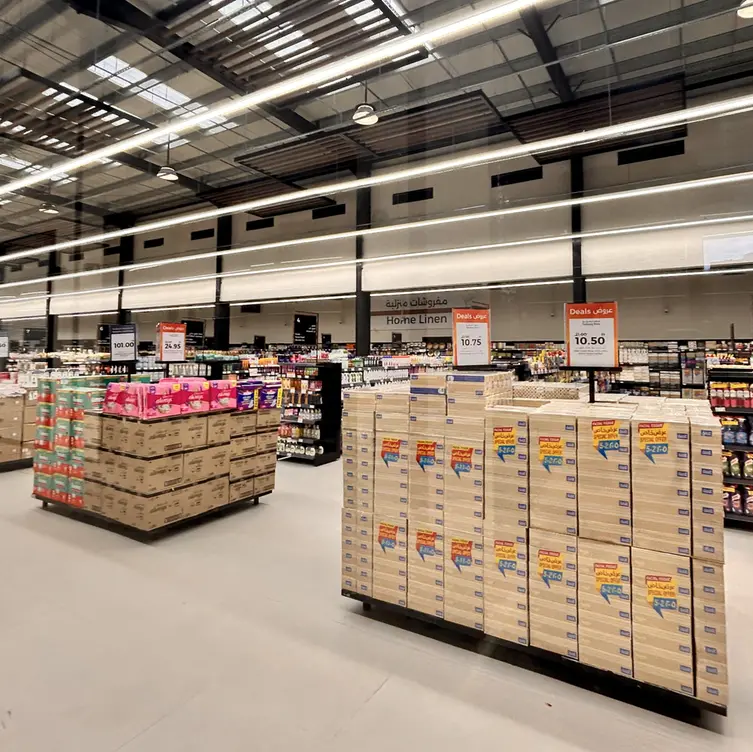Middle East business leaders and decision makers consider environmental, social and governance (ESG) initiatives to be a top business priority, with a focus on energy management and occupant safety and well-being.
According to a survey commissioned by Honeywell on building sustainability and energy management, more than 300 business leaders and decision-makers in the UAE, Saudi Arabia and Egypt revealed that over the last two years, ESG has grown in importance within organisations, driven by an increased focus on the need for sustainability improvement, and an immediate requirement to support cost-efficiency improvements and occupational health and safety resulting from the Covid-19 pandemic.
Eighty-nine percent of respondents say that environmental, social and governance (ESG) considerations are important to their organisation's strategy with 84 percent saying that energy management and sustainability are important to their organisation today.
Eighty percent of respondents say that the importance of energy management and sustainability in their organisation has increased over the last two years
Occupant health and safety (50 percent) is the most commonly invested in area of ESG.
Forty-three percent of respondents say that Covid-19 helped accelerate their organisation's energy management and sustainability initiatives, versus only 21 percent who say the pandemic hindered such initiatives
Energy efficient lighting, predictive maintenance software and HVAC optimisation are now common areas of investment among building managers, with approximately 76 percent of respondents in UAE and KSA and 58 percent in Egypt confirming that their organisation implemented air quality measures in their building during Covid-19.
Eighty percent of respondents believe that an autonomous control or a predictive maintenance solution would improve their organisation’s energy management operations.
Eighty percent of respondents believe that digital-based solutions available today are effective in improving energy efficiency of buildings.
Honeywell’s building technologies help enable smarter buildings and building portfolio management, simplify facility operations, and increase operational and energy efficiency driving business growth.
Honeywell Forge enterprise performance management software-as-a-service can drive digital transformation in buildings while reducing energy consumption and delivering operational efficiencies.
For example, Honeywell Forge Energy Optimisation, is a patented, cloud-based, closed-loop solution that connects to a building’s existing HVAC systems to optimise energy consumption.
This closed-loop solution operates without the need for human intervention by regularly analysing near real-time conditions data – such as weather and occupancy – with predictive, machine learning models that compute and adjust set points automatically over a facility’s entire HVAC distribution system. This solution supported the United Arab Emirate’s first accredited smart university to achieve double-digit energy savings.
With Energy Service Company (ESCO) accreditation in the UAE (Dubai, Sharjah, Abu-Dhabi, Ras al Khaimah) and Saudi Arabia, Honeywell is licensed to provide energy services to customers in building management through Energy Service Performance Contracting (ESPC), Energy Performance Contracting (EPC) and building retrofits. Globally, Honeywell has completed more than 6,000 EPC projects, delivering more than $10 billion in guaranteed energy and operational savings.
“As an active ESCO in the region, we understand the challenges of driving energy efficiencies across facilities. By treating buildings as dynamic entities and deploying the right technologies, it’s possible for building owners and managers to achieve both goals of meeting their energy efficiency targets and creating a healthier indoor environment for their occupants,” said George Bou Mitri, president, Honeywell Building Technologies, Middle East, Turkey and Africa.
Copyright 2021 Al Hilal Publishing and Marketing Group Provided by SyndiGate Media Inc. (Syndigate.info).
Disclaimer: The content of this article is syndicated or provided to this website from an external third party provider. We are not responsible for, and do not control, such external websites, entities, applications or media publishers. The body of the text is provided on an “as is” and “as available” basis and has not been edited in any way. Neither we nor our affiliates guarantee the accuracy of or endorse the views or opinions expressed in this article. Read our full disclaimer policy here.




















